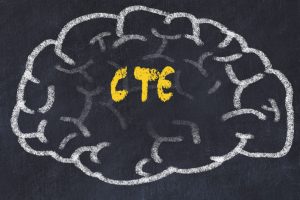
By: Dr. Leila Doolittle
In the United States alone, millions of athletes participate in sports with potential for head injury each year. Recently, there has been more research coming out showing a link between repetitive head injuries and long-term neurological consequences.
Neurons are the brain’s superhighway: There are over 86 billion neurons connected by more than 100 trillion synapses forming a complex network that enables us to interpret and react to our environmental surroundings. Neurons are composed of the cell body, the axon and the axon terminal, communicating with each other by sending electrical signals down axons and off to adjacent cells. Axons are like wires; they help neurons reach cells in different parts of the brain. But they are fragile and injury-prone. This damage to the transportation system makes it difficult for the brain to send signals and thus function.
Microtubules are also part of the signal transduction system, much smaller than axons but still important in the delivery of material within the cell. They are susceptible to even smaller impacts than concussions. With repeated microtubule breakdown, tau protein can float freely inside the cell. This free tau protein can change shape and clump together or spread to other surrounding brain ares. Studies show that pathologies of tau proteins may be linked to neurodegenerative disorders such as Alzheimer’s disease and Parkinson’s disease.

Repetitive mild traumatic brain injury is a central component of American football. It can lead to chronic traumatic encephalopathy (CTE), a condition characterized by tangles of tau. Symptoms of CTE can include everything from impaired executive brain function and short-term memory loss, depression, emotional instability and suicidal thoughts or behavior. Scientists have known about the brain damage caused to professional boxers since 1920’s. In recent years, studies have looked at professional football players and are finding a strong correlation. A study conducted at Baylor University found that of 202 brains of deceased football players that were analyzed, CTE was neuropathologically diagnosed in 177 (87%). When looking specifically at those who played in the NFL, the number rose to 110 of 111 samples (99%).
The NFL is taking steps toward making the game safer: helmet-to-helmet hits are banned and penalized, kickoffs have been changed to limit full-speed collisions, the amount of contact in practices have been lessened, the league is analyzing artificial playing surfaces to soften the impacts, and every team must follow strict guidelines of concussion protocols to instantly remove players from the field if they are suspected of having a concussion.
So how young should we be allowing our kids to get involved in contact sports such as football? A study zeroed in on the effects of head slams by comparing groups of adults who started in football before and after age 12 and who went on to develop CTE. Those in the study who played before the age of 12 experienced cognitive defects as well as behavioral and mood problems a full 13 years earlier than those that started playing after 12 years of age. Another study of the brains of children ages 8 to 13 that played tackle football for just one season already showed changes in their brains. We won’t know how extensive these effects will be for another 20 years.
Beyond the NFL and youth football, we all need to be aware that our brains are at risk with even a few mild bumps or one or two car accidents that involve whiplash. What can we do to help minimize the impact of brain injuries? How can we help rebuild the neural connections that are damaged? Can we help rebuild and regrow the pathways of our brain to make it function better? At Carpathia Collaborative, we have concussion protocols to help in case you, a friend or a loved-one experiences any brain injuries. There are many nutritional compounds that can help to reduce the deleterious effects of brain injury, and there are neural exercises that can be recommended to encourage your brain to reform neural-synapses and neural network communication.
Schedule an appointment with Dr. Leila Doolittle to learn more about the brain and what you can do by calling 469-729-6461.

